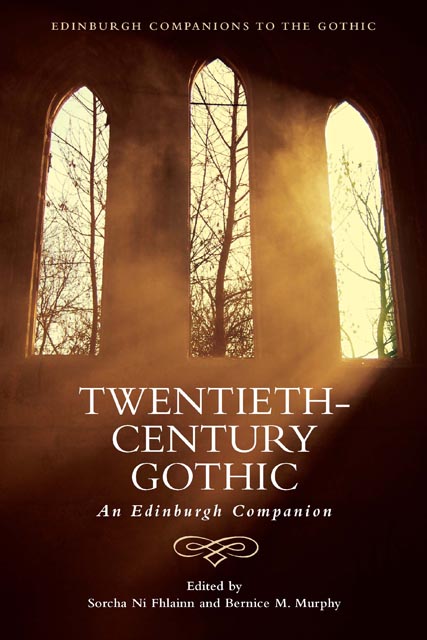2 - Weird Fiction in the Twentieth Century
Published online by Cambridge University Press: 18 November 2022
Summary
Any definition of weird fiction in the twentieth century is tied to the work of H. P. Lovecraft (1890–1937). Although the weird did not begin or end with his fiction, he is a key figure because of his theorisation of the weird in the long essay ‘Supernatural Horror in Literature’ (1927), in which he creates a canon of authors who achieve this effect. Although gesturing towards the development of the weird impulse in the nineteenth century and its metamorphosis into the ‘New Weird’ in the twenty-first, this chapter will focus on the weird as it manifests in the twentieth century, centred around Lovecraft and the magazine Weird Tales (1923–), but expanding the definition to include a wider range of authors whose work can be considered to fall within this category. The approach is expansive and aims to avoid a reductive view of the weird as belonging only to Lovecraft and his circle, while of course acknowledging their importance. By necessity of space, not all relevant authors can appear here, but the intention is to give a sense of what is meant when readers and critics discuss the weird. Weird fiction, broadly, is a type of storytelling that attempts on some level to produce the effect of horror and may or may not adhere to Gothic conventions built up over time. In its tendencies to embrace elements of speculative and science fiction, it actively engages with the implications of developments in science while at the same time going beyond and making strange. This very strangeness, the ‘weird’ in the title, represents a rich seam of imagination that continues to be mined by authors in the twenty-first century, even as they go beyond the perceived limitations and certainly outdated worldviews of some its practitioners, notably Lovecraft himself.
Many of the authors here are American and flourished in the country's culture of ‘pulp’ magazine publishing. Weird fiction is not limited to the United States in the twentieth century, but there is a case to be made for it being somewhat of an ‘American Century’ for the mode. Gothic fiction, originating in Europe and coinciding with the growth of the new American republic, hit its stride early in the country, with authors such as Edgar Allan Poe not only innovating in the form, but sowing the seeds for what would later be considered as the ‘weird’.
- Type
- Chapter
- Information
- Twentieth-Century GothicAn Edinburgh Companion, pp. 33 - 48Publisher: Edinburgh University PressPrint publication year: 2022



